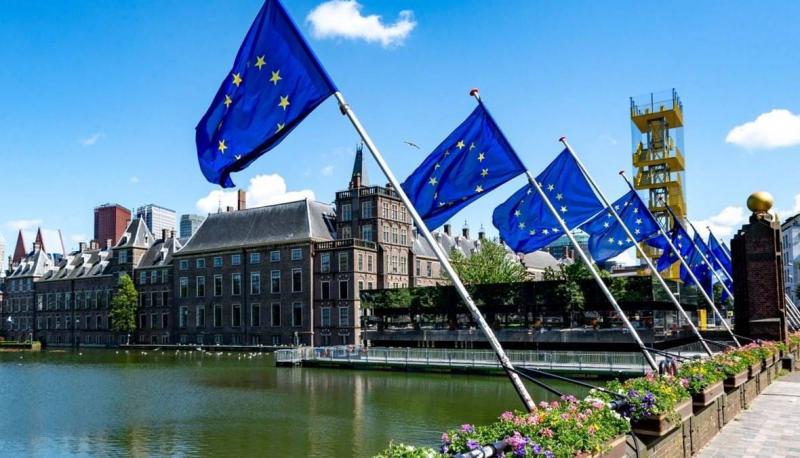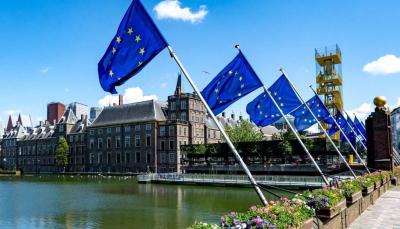The Netherlands opened the European Parliament elections yesterday, Thursday, which will last for four days across the bloc to elect 720 European MPs. All expectations so far indicate a rise of the far-right and nationalist parties despite their divisions. Nearly two and a half years after the start of the Russian invasion of Ukraine, and while the European Union is struggling to secure the necessary funds to bolster its defense industry, 370 million Europeans were called to the polls in a charged atmosphere, with major states in the bloc asserting their vulnerability to Russian disinformation attacks.
The elections began yesterday in the Netherlands, where voters started casting their ballots at 07:30 AM (05:30 GMT). This marathon election will conclude on Sunday, a day when the citizens of Germany and France, the largest economic powers in the bloc, will notably participate. The Party for Freedom (PVV), led by the far-right Geert Wilders, has advanced in the polls in the Netherlands. Although Wilders abandoned his pledge to hold a binding referendum on the Netherlands' exit from the European Union, his program remains severely skeptical about the effectiveness of European institutions. Wilders stated yesterday upon leaving The Hague's town hall after voting, "We want less immigration, we want stricter asylum laws and policies, we want to be responsible for our choices again."
The Netherlands is expected to see nationalist and far-right powers, along with other EU-skeptic forces, lead in the elections. In this context, Nathalie Brack, a political science professor at the Free University of Brussels, noted that the peculiarity of these elections lies not in the rise of the far right but in a "kind of normalization" of it. She clarified that "the idea of cooperation with certain far-right forces has become somewhat normal, given the national-level alliances formed with the far right."
It is noteworthy that one of the primary tasks of the new parliament, the orientation of which will be revealed on Sunday evening, will be to confirm or reject the choices for "top positions" in the EU, namely the heads of the bloc's institutions that its 27 leaders will attempt to agree upon at the summit scheduled for the end of June in Brussels. Regarding the presidency of the Commission, German Ursula von der Leyen, who is seeking a second term and belongs to the European People's Party (right), the leading force in the European Parliament, remains in a good position.
However, a last-minute surprise cannot be ruled out at the end of the traditional overnight negotiations in Brussels, as even if von der Leyen is elected by the 27 national leaders, she still needs to secure the parliament's support during the plenary session in Strasbourg, or else she will have to start from scratch. Meanwhile, Sebastian Miard from the Jacques Delors Institute warned, "These are tough times, and we must act quickly," cautioning against the risk of a leadership vacuum. He further explained that "the European ability to embody democracy, find compromises, and maintain a minimum of cohesion in the face of Putin, China, and the future American president is at stake," referring to the presidential elections scheduled for November 5, which could lead to Donald Trump's return to the White House.




